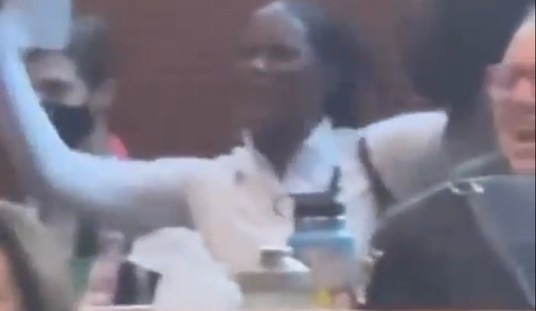For months, I have been arguing here that states covered by the Voting Rights Act should submit election law changes directly to district court for approval and bypass Eric Holder entirely. Submitting to DOJ allows the civil rights industry to leverage partisan pressure into Eric Holder’s politicized Voting Section. Now it looks like Texas is about to pay the price for submitting statewide redistricting plans to the DOJ. Tabella over at Election Law Center is reporting that the DOJ is preparing an objection to be handed down by next Monday, September 19. Texas has also submitted voter identification plans to DOJ for approval. Perhaps the pending objection will highlight that mistake, resulting in Texas yanking the Voter ID submission and going straight to federal court, as should have been done in the first place. Judges are less biased than the people highlighted in the PJM Every Single One series.
For everyone who still puzzles why the Justice Department must approve state election laws, it is the law, and the majority of Republicans and Democrats reauthorized the law in 2006. I will cover many of the lawless abuses under this law that the supporters probably didn’t count on in my forthcoming book Injustice, which releases October 4.
UPDATE: One thing Texas could do is withdraw the submission as soon as lawyers arrive at work in Austin. The submission shouldn’t have been made to DOJ in the first place, and Texas has a chance to correct this mistake before DOJ can get the final objection handed down. All it takes is a withdraw letter and a fax machine. Assuming the federal court will do a full, complete and genuine de novo review of the submission is fantasy. Objections matter.
ANOTHER UPDATE: The Texas Attorney General’s Office doesn’t think they made a submission to the DOJ. The original story quoted above plainly states: “So much for the internal and confidential administrative review process of the DoJ Voting Section, a process that is supposed to conduct its analysis without leaks to the media or the interest groups.” The author assumes it is not an informal submission because, of course, there is no provision to make “informal submissions” to DOJ. Unless DOJ acknowledged it was treating the Texas submission as such, it would seem to be free to object to any submission made, regardless of the hedge. Either way, a clarifying withdraw letter might patch this up nicely. It wouldn’t even cost 45 cents. Texas did submit the Texas Voter ID statute to DOJ for preclearance, so look for a sequel to this whole mess shortly.








Join the conversation as a VIP Member